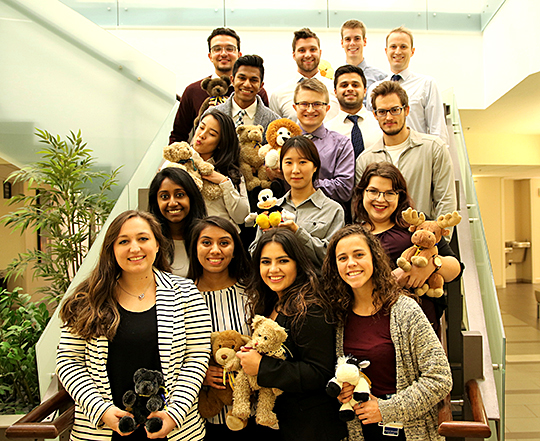Children who come into the emergency room are presented with a strange and often frightening environment. Receiving a stuffed animal from one of UT Medical Center’s volunteer patient advocate assistants can help calm some of those fears and make a big difference in a child’s experience.
To ensure all pediatric patients who come through UTMC’s emergency room can receive a stuffed animal, the master of science in biomedical science in medical sciences volunteer patient advocate assistants group is holding a stuffed animal drive Tuesday, Nov. 6, through Friday, Nov. 9, from noon to 2 p.m. in the Four Seasons Bistro.

Members of the master of science in biomedical science in medical sciences volunteer patient advocate assistants group are collecting stuffed animals to give to pediatric patients in the emergency room.
Volunteers from the master of science in biomedical science in medical sciences work throughout the hospital, but much of their time is spent in the emergency room.
“The seemingly small act of giving a stuffed animal can significantly help calm a scared and anxious child, allowing our wonderful ER staff to provide effective and compassionate care,” said Ben Talbot, one of the 18 members in the volunteer patient advocate assistants group.
Many of the group’s members plan to attend medical school.
“Our objectives are to develop good communication skills so that as physicians we will be better prepared to communicate with our patients,” Talbot said. “In addition, we help facilitate improved medical care by advocating for patients we are in contact with, as well as help improve doctor-patient communication by assisting with explaining complicated medical concepts in terms patients can understand.”